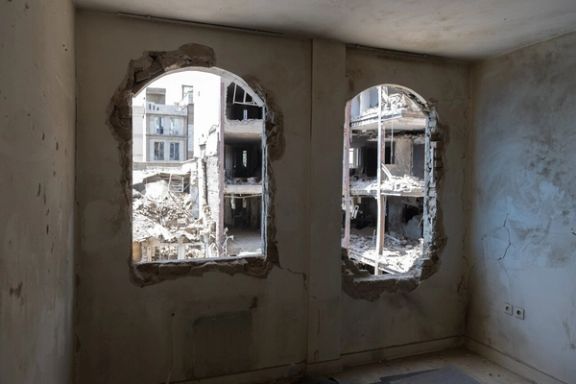Israeli bombs shattered homes—and our sense of safety

This is Tehran, two weeks after the ceasefire with Israel. Shops are open, people are out, the air is as polluted as ever—and the dread that began last month still hasn’t lifted.

This is Tehran, two weeks after the ceasefire with Israel. Shops are open, people are out, the air is as polluted as ever—and the dread that began last month still hasn’t lifted.
Many are convinced it will start again.
“More homes will collapse. More people will die,” says Masoud, the electrician fixing the lights in our building’s corridors. “We have our carry-on ready by the door.”
Fears aren’t as sharp as last week, but many in the neighborhood still talk about safe and unsafe spots. The strike on Evin Prison—and the video of a blast at a busy junction in northern Tehran—hammered home the reality of war.
“We were at my in-laws’, right next to the prison. We thought it was the safest place—no way they’d hit a prison. But they did,” says Shadi, who lives with her husband and their two children in the apartment above us.
“The chandelier broke off and glass shattered everywhere. My son and his grandma had surface cuts. It could have been far worse.”
The prison bombing has seeded a new fear, Shadi says. “If even the prison isn’t safe, then what is? Not hospitals, not universities, not schools, not kindergartens.”
Kindergarten—that’s another image that cannot be unseen: shattered dolls and toys flung across the room. By sheer chance, it had closed 15 minutes before impact.
'Did they hit again?'
Officials say over 3,200 residential units were destroyed in Tehran. Thousands are now homeless. The wreckage has chipped away at war supporters.
One of them is a close friend of mine from university—Yara.
Before, when I warned that war meant destruction, he’d say: “This isn’t war. It’s just precision strikes against officials and bases, not civilians.”
Yara was lucky not to be physically hurt, but he was close enough to enough loud explosions to have nightmares—per his partner.
“He still jumps up at night and asks me, zadan (did they hit?)”
Not all war supporters have changed their minds. In many homes, even emotional bonds were frayed under the bombs. When the ceasefire came, some were relieved, others angry.
“We endured the war, and they’re still here,” you hear many say.
They—who are still here—refers to Iran’s ruling elite, the Islamic Republic, the regime, as many prefer to call it.
Quite a few people I know hoped a few days of bombing would force the regime to collapse or walk away. The further you get from the epicenter, the deeper the divide, perhaps because you haven’t heard the blasts or watched the walls crumble.
I remember a conversation on day two of the war, before the full fear had set in. I asked a cousin and his wife to leave Tehran with us, for the sake of their kids.
“What if there are evacuation alerts like Beirut?” I implored. “Tehran will lock down. You won’t be able to leave.”
They refused, pointing me to their conversations with ChatGPT.
In the worst-case scenario, you could grab your bag and walk a couple of blocks to safety, they argued. “Any such alert would cover a couple of alleys at most. That’s what a precision strike is.”
ChatGPT had reassured them.
A new reality
Later, they told me what happened when evacuation orders hit districts six and seven—two major parts of the city. They had stayed. We had left.
“People were fleeing in panic in the middle of the night. Car horns nonstop,” my cousin’s wife said. “I sat in the car with my head in my hands, hoping nothing would explode nearby.”
That’s everyone’s fear these days—that the pause in fighting ends and they, or someone they love, are near an unannounced target of another “precision strike.”
And then there are the costs few talk about.
Many companies have laid off staff. It’s peak moving season in Tehran—leases ending, rents rising. People don’t know whether to stay, sign, or leave.
We thought we were used to suspended life—constant inflation, sudden, irreversible shifts in the economy and politics. But this is something else. A new phase entirely.